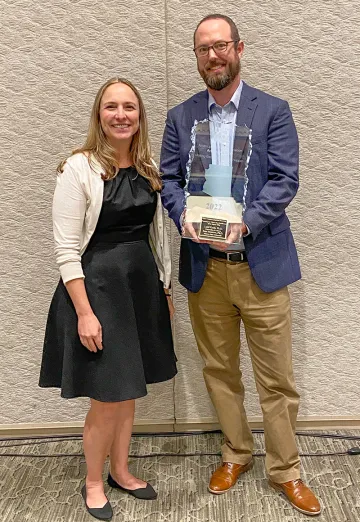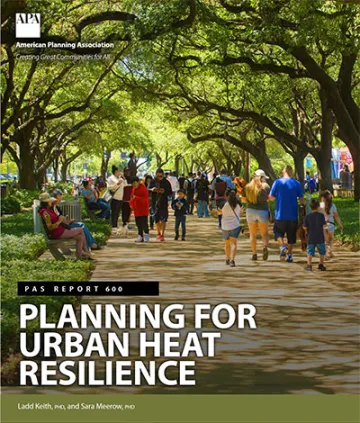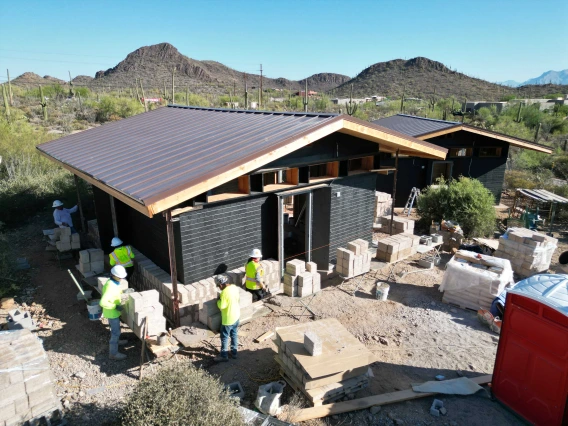Timely, Essential ‘Planning for Urban Heat Resilience’ Report Wins Planning Awards

Photo by Reynaldo #brigworkz Brigantty, courtesy Pexels.

Sara Meerow and Ladd Keith accept the 2022 APA Arizona Open Category (Applied Research) Award on August 25, 2022.
Thanks to a partnership with the American Planning Association, Ladd Keith, assistant professor of planning and sustainable built environments in the College of Architecture, Planning and Landscape Architecture at the University of Arizona, and Sara Meerow, associate professor in the School of Geographical Sciences and Urban Planning at Arizona State University, recently published a comprehensive guide for planners and their communities to equitably prepare for urban heat resilience and mitigation: Planning for Urban Heat Resilience.
The timely and relevant Planning Advisory Service report, which was funded in part by the National Oceanic and Atmospheric Administration’s Extreme Heat Risk Initiative, has since garnered wide acclaim for its practical application across communities. This fall, Keith and Meerow received two prominent planning awards for their work.
Western Planner—a nonprofit organization based in Montana that strives to raise the general quality of planning in the Mountain-Plains areas of the American West through the sharing of ideas, planning news and practical planning methods—honored Keith and Meerow with the Western Planner 2022 Sheldon D. Gerber Merit Award for Excellence in Environmental Planning. The award, which Western Planner President Angela Parker says “recognizes outstanding achievements in environmental planning for individuals who are striving to improve the environment and protect the natural world,” was presented on September 14, 2022 in Bismarck, North Dakota.
On August 25, 2022, the Arizona Chapter of the American Planning Association also recognized the value and significance of the publication. APA Arizona honored Keith and Meerow with the 2022 APA Arizona Open Category (Applied Research) Award.

The 98-page report, which may be downloaded for free, provides holistic guidance to help practitioners increase urban heat resilience equitably in the communities they serve. It provides an in-depth overview of the contributors to urban heat and equity implications, and it lays out an urban heat resilience framework and collection of strategies to help planners mitigate and manage heat across a variety of plans, policies and actions.
Keith, who joined CAPLA in 2009, has over a decade of experience planning for climate change with diverse stakeholders in cities across the U.S. His research explores heat planning and governance with funding from the National Oceanic and Atmospheric Administration, the Centers for Disease Control and Prevention, and the Department of Transportation. He is also a faculty research associate at the Udall Center for Studies in Public Policy. In addition to founding and leading CAPLA’s Bachelor of Science in Sustainable Built Environments, Keith teaches public participation and dispute resolution as well as climate action planning.
Meerow is an interdisciplinary social-ecological systems scientist working at the intersection of urban geography and planning. Her research tackles the challenge of how to make cities more resilient in the face of climate change and other social and environmental hazards. She combines more conceptual studies of urban resilience with empirical research on the complexities of green infrastructure and climate change adaptation planning in a range of cities across the U.S. and internationally.



